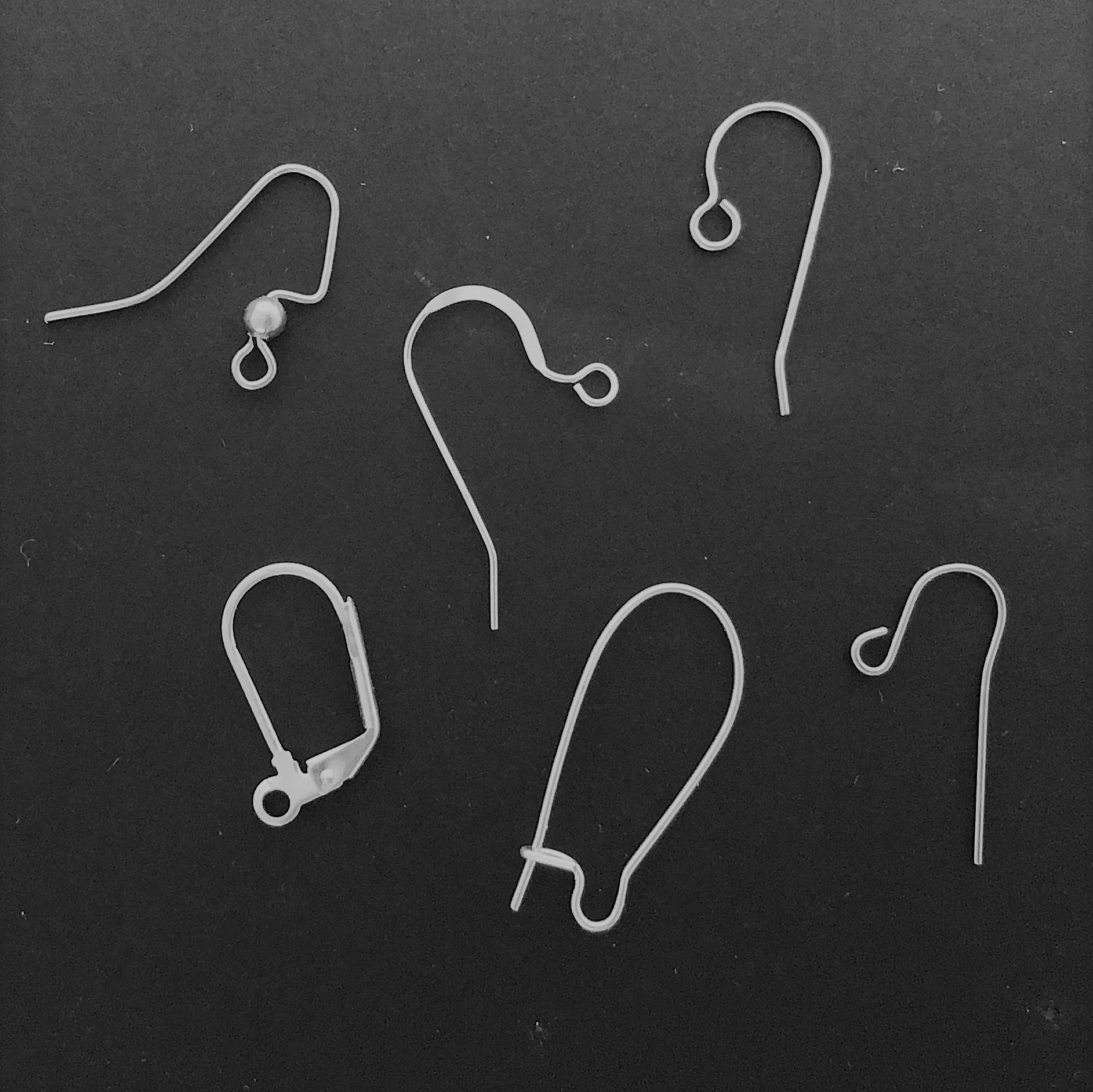Hypoallergenic Earrings
Earrings for sensitive ears
Did you know that the ear wires of most dangle earring styles can be changed to something more allergenic? Many people are sensitive to certain metals, especially nickel. And most of the earrings that I design can be converted to clip-on’s. This post on the subject from 2018 is getting a lot of attention lately. I think it bears repeating:
Many people have sensitive ears or have metal allergies near the ears or face. If your pierced ears react to certain metals, Earthbeat Designs is here to aid you. I stock a variety of earring hooks, which can easily be changed for most of my designs. No matter what the metal, there is probably someone who is sensitive or allergic to it. Gold ear wires turn my ear lobes black. Go figure. So it doesn’t matter how much or little they cost.
Nickel. The most common earring sensitivity is to nickel. It's been estimated that 10-12% of women and 6% of men experience an allergy to nickel. Be aware that the government allows a product to be labeled nickel free and still contain up to 5% nickel. To make matters even more complicated the term hypoallergenic only means that the jewelry is less allergenic. (Less than what, we don’t know).
It may prove difficult to find earrings for sensitive ears. To help you determine the best earrings for sensitive ears, here are some facts about metals commonly used for earrings:
Sterling Silver. I mostly use sterling silver wire in my earring designs. For earrings containing any sterling silver I will always use sterling silver earring hooks to match. Sterling Silver is nickel free, but some manufacturers may add small amounts of nickel to their products for strength. Sterling Silver ear wires are sometimes nickel plated for extra shine. The sterling silver ear wires that I use have no nickel added.
Surgical Steel. Most people can wear Surgical Steel earrings for sensitive ears. However, be aware that surgical steel does contain 8-12% nickel. So if you are sensitive to nickel, you should avoid surgical steel.
Copper. Pure copper is nickel free, but copper jewelry can contain small traces of nickel or other alloys. It is also quite reactive to chemicals in the skin and can turn earlobes green.
Rhodium. White gold is commonly plated with rhodium, a pure element. Silver is also sometimes rhodium plated. Rhodium gives white gold a whiter finish, and it keeps silver from tarnishing. Rhodium itself should be safe, but because rhodium plating needs nickel to make it stick, I would avoid it.
Titanium. Strong, durable and lightweight, pure titanium for sensitive ears is totally non-allergenic, but titanium can be alloyed with a number of metals. Look for grades 1-4, which are the most pure. “Surgical” or “implant grade” titanium is grade 5. It is nickel free, but is alloyed with other metals.
Fine Silver. Fine Silver is 99.9% pure. Most people are not sensitive to fine silver.
Argentium Silver. A popular alternative to Sterling Silver because it is slower to tarnish, Argentium Silver contains a little more silver than Sterling Silver. It also contains copper and germanium. Germanium makes the silver harder, whiter and brighter. It is the element that makes argentium silver resist tarnish. Argentium Silver is nickel free, and most people can wear it without a problem.
Gold Filled. This is usually a 5% layer of 14 Karat gold which is pressure bonded to brass. The gold layer is much thicker than gold plated jewelry. In fact, gold filled items contain 100% more gold than gold plated ones. Unless the gold wears off, is nicked or cut, gold filled jewelry should have the same properties as 14 karat gold.
Karat Yellow Gold. Pure gold is very soft and so it is often alloyed with other elements to harden it. These elements can include zinc, silver, nickel, copper and/or palladium. Many people who are sensitive to other metals can wear 14 or 24 Karat Gold, however a small number of people can be allergic to it.
White Gold. The alloys used to make White Gold white are nickel or palladium. Palladium is generally safe, but many people are allergic to nickel. White gold can also be plated with rhodium. (See Rhodium above).
Niobium. Probably the safest metal for sensitive ears, Niobium is 99.99% pure and not combined with any other metal. Niobium is strong, doesn’t corrode or tarnish, and has a natural shine. It can also be anodized in an array of colors.
When ordering earrings from Earthbeat Designs you may request a specific type of ear wire upon check out. Look for special instructions/questions on the checkout page. I keep a supply of Niobium, Surgical Steel, Sterling Silver, 14 Karat Gold-Filled and copper earring hooks in a number of different styles. I also have clip-on’s, which can easily be switched if you don’t have pierced ears.




